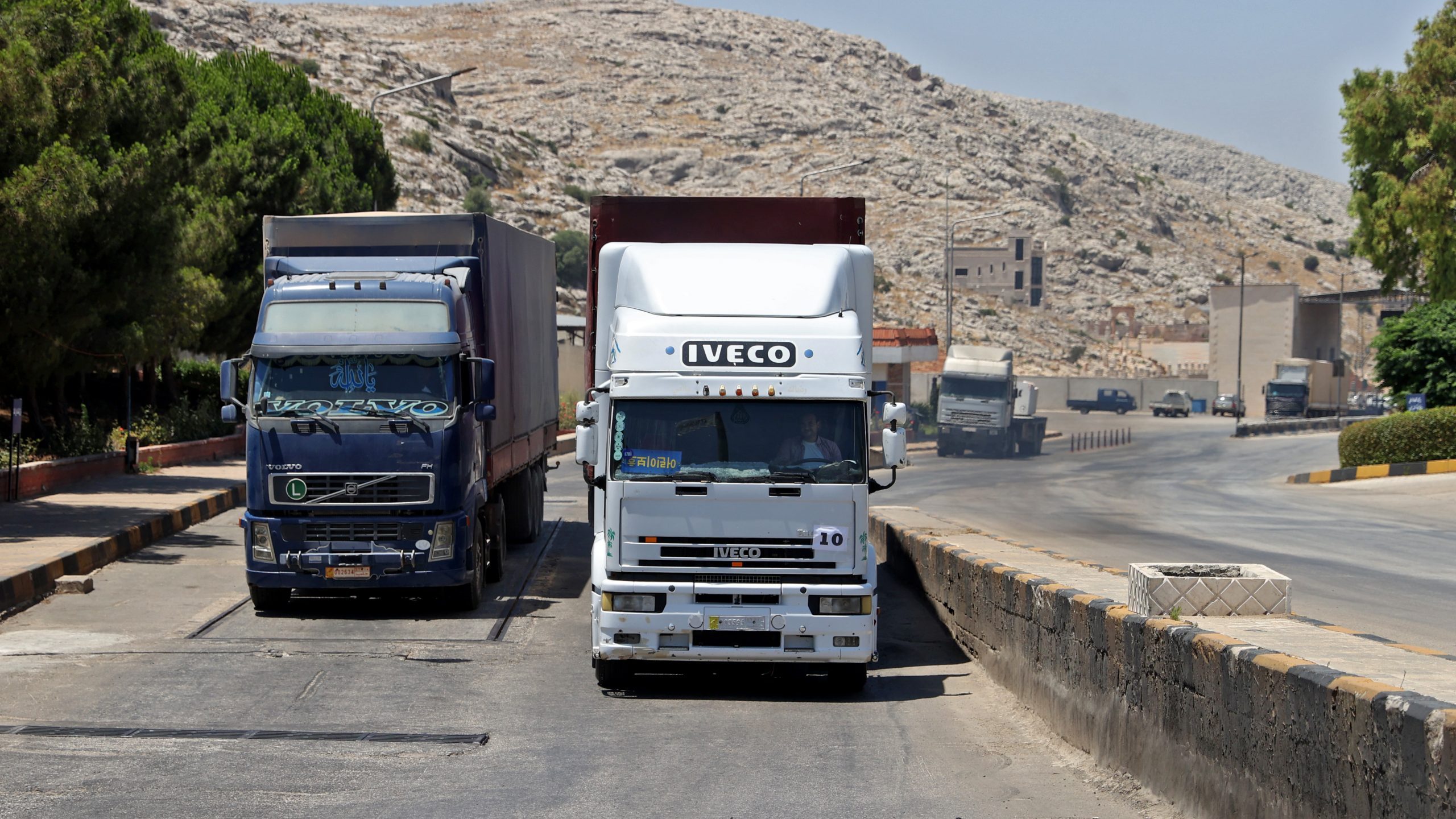Turkish President Recep Tayyip Erdogan on Monday urged his Russian counterpart Vladimir Putin to extend the authorization for cross-border deliveries of humanitarian aid into Syria.
His appeal came as diplomats at the United Nations scrambled to find a solution that could overcome a Russian veto to a system that has kept aid flowing into the war-ravaged country since 2014.
“Erdogan emphasized that he attaches importance to the extension of the cross-border mechanism in Syria,” his office said in a statement issued after telephone talks following the expiry Sunday of the mechanism.
The Kremlin made no mention of the Syria crossing in its readout of the call.
But it said the two leaders discussed preparations for a summit to be held “in the near future”.
Erdogan has been offering to meet Putin for months in an effort to help resolve global tensions that have reached historic highs since Russia’s invasion of Ukraine.
The Turkish-Syria border at the Bab al-Hawa crossing is the only way UN assistance can reach civilians without navigating areas controlled by Syrian regime forces.
Russia used its veto power on the UN Security Council to strike down Western proposals to keep the border crossing open for another year.
Western powers are resisting a Russian counter-offer to keep the crossing open for only six more months.
The UN Security Council has previously extended the cross-border mechanism after it had expired and several sources said a vote was still possible this week.
The Kremlin made no mention of the UN discussions and instead stressed the importance of the so-called “Astana process” for peace in Syria, which besides Russia and Turkey also involves Iran.
Erdogan has tried to leverage his good working relations with both Putin and Western-backed leaders in Kyiv to calm tensions.
His office said Erdogan also urged Putin to “take action” on a UN proposal for resuming stalled Ukrainian grain exports across the Black Sea.
Death, catastrophe as cross-border aid at risk
Residents of embattled northwest Syria warned Saturday of a deepening humanitarian crisis following a Russian veto at the UN Security Council that threatens to end cross-border aid deliveries critical to their survival.
Friday’s veto of a resolution that would have extended authorization for UN aid deliveries through the Bab al-Hawa crossing on the Syrian-Turkish border by one year came on the eve of the Muslim Eid al-Adha holiday.
It cast a pall over celebrations and has left residents of Syria’s last major opposition bastion increasingly worried, at time when humanitarian needs have reached record levels and hunger rates are at their highest since the start of the conflict in 2011, according to the UN.
Read Also: UN Security Council Delays Vote on Extending Syria Cross-border Humanitarian Aid
“Russia has destroyed our houses, ravaged our children and forced us into displacement… now, it wants to close the (aid) crossing,” said Ftaym, a 45-year-old displaced Syrian living in a camp in Idlib province.
“If the Bab al-Hawa crossing closes, cutting us off from the relief and supplies that are delivered to us, then we will die,” said the mother of 14 children.
The cross-border mechanism at Bab al-Hawa, which has been in effect since 2014, is set to expire Sunday.
It is the only crossing through which UN assistance can be brought into the rebel-held northwest without navigating areas controlled by Syrian government forces.
More than 4,600 aid trucks, carrying mostly food, have crossed Bab al-Hawa so far this year, helping some 2.4 million people, according to the UN’s Office for the Coordination of Humanitarian Affairs (OCHA).
Famine
On Saturday, Bab al-Hawa was closed because of the Eid al-Adha holiday, an AFP correspondent at the crossing said.
Silence has prevailed over the border area since a final aid convoy crossed over on Friday at noon.
“Everyone knows most camp residents are completely dependent on this aid,” said Abdulsalam Youssef, a displaced Syrian who lives in a makeshift Idlib settlement.
Russia’s veto spells a “catastrophe for me”, he added.
The Sunday deadline still leaves time for members of the Security Council to keep the crossing open.
Diplomats said the council’s non-permanent members may propose a nine-month extension to try to break the impasse.
But Syrians in Idlib are skeptical of Moscow, which has backed repeated campaigns by the Damascus government against the rebel enclave.
Russia’s veto exemplifies a “siege and famine policy that Russia resorts to across Syria”, charged Mazen Allouch, an official at the Bab al-Hawa crossing.
Failure to extend the authorization would “serve as a prelude to an uncontrollable famine that would directly threaten food security of more than four million people” living in Syria’s northwest, he told AFP.
The number of Syrians who lack access to sufficient food stands at a record 12.4 million, or nearly 60 percent of the population, the UN says.
Moscow’s move also triggered alarm from senior UN officials and aid groups who had lobbied Security Council members for the year-long cross-border aid clearance.
“I hope the Security Council will meet again soon and agree on a way forward,” said Mark Cutts, UN deputy regional humanitarian coordinator for the Syria crisis.
“Failure to renew the resolution for cross-border aid will be a catastrophe for over four million people in northwest Syria,” he told AFP.
David Miliband, president of the International Rescue Committee, said Syria’s “already extreme crisis is set to move to a humanitarian catastrophe” without sufficient alternatives to cross-border aid.
The Syrian Observer has not verified the content of this story. Responsibility for the information and views set out in this article lies entirely with the author.


